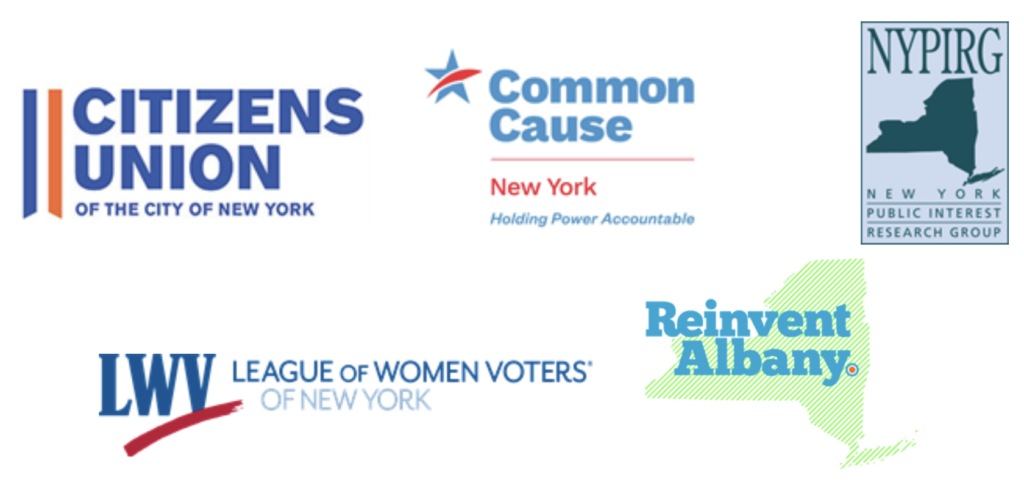VIA EMAIL
August 29, 2023
Elizabeth Fine, Esq.
Counsel to the Governor
Executive Chamber
Capitol, Second Floor
Albany, New York 12234
Re: Recommend Approval of S.4152/A.5786, Disclosure of Lobbying for Nominees
Dear Ms. Fine:
Our organizations urge that you recommend that the governor approve the above-referenced legislation, which requires disclosure of efforts to influence the nomination and/or confirmation of individuals to certain positions in state government.
This legislation would amend the Legislative Law to expand the term “lobbying” to include any attempts to influence the nomination or confirmation of any person to state office for a position that is subject to Senate confirmation. It would require the disclosure of the identity of the organization, spending, and activities of those who lobby to influence the nomination or confirmation of any person to state office in registration statements, bimonthly lobbying reports and semiannual lobbying reports.
New York’s Lobbying Law currently does not require public disclosure of efforts to influence the nomination or confirmation process for positions requiring Senate approval. This loophole allows lobbying to go unreported, and thus allows efforts to influence the appointment of important state positions to occur out of the public’s view.
This legislation addresses the lack of transparency around this type of lobbying, which was recently highlighted by the nomination of a new Chief Justice of the New York State Court of Appeals. The Times Union revealed that tens of thousands of dollars were spent to influence this recent appointment.1
However, due to the lack of disclosure of such lobbying, the public would have been completely unaware of this effort, if not for the Times Union.
The possibility of lobbying to influence nominations for public offices does not apply solely to the Court. The current loophole would hypothetically allow utility companies to lobby for nominees for the Public Service Commission and be able to do so outside of public view. Ironically, lobbying to influence appointments that require joint legislative agreement (e.g., the Board of Regents) does require reporting since such approval is based on a resolution. Requiring reporting of lobbying to influence some appointments, but not others, is inconsistent.
Lobbying on efforts to influence all nominations should be publicly reported. State agency heads set the regulatory agenda for government agencies and the Courts interpret state law. Influencing which individuals are appointed is a clear example of lobbying to impact the policies of New York State. As such, those activities should at least be publicly disclosed.
It is crucial for the public accountability of New York’s government that efforts to advance or oppose a nomination be regularly and publicly disclosed.
Sincerely,
Blair Horner
Executive Director, NYPIRG
Susan Lerner
Executive Director, Common Cause/NY
John Kaehny
Executive, Reinvent Albany
Betsy Gotbaum
Executive Director, Citizens Union
Laura Ladd Bierman,
Executive Director, League of Women Voters of New York State

